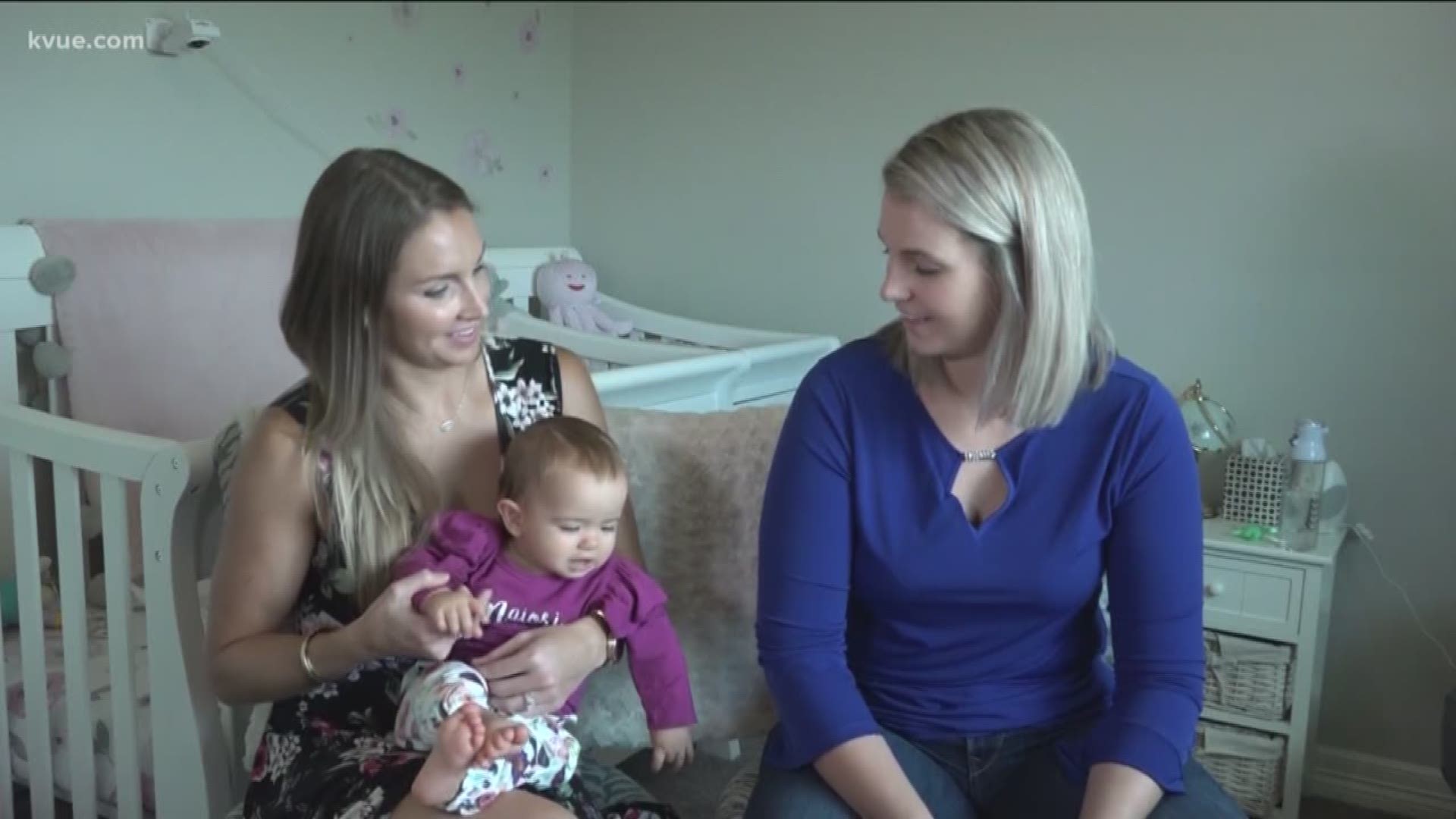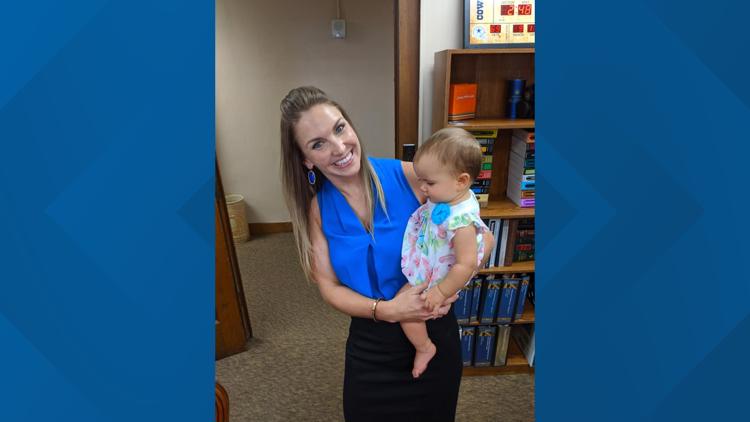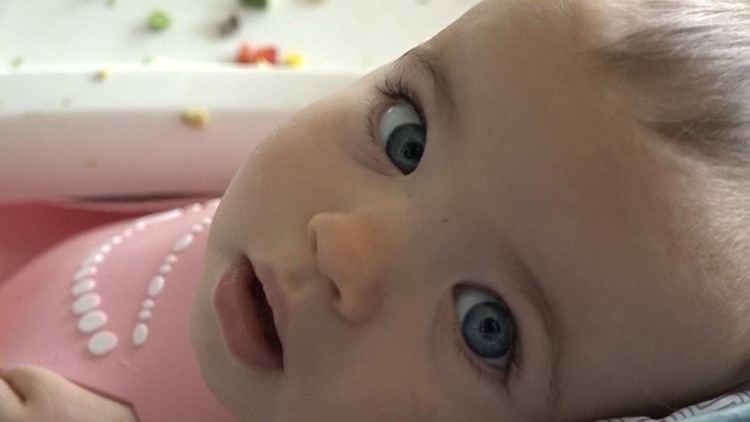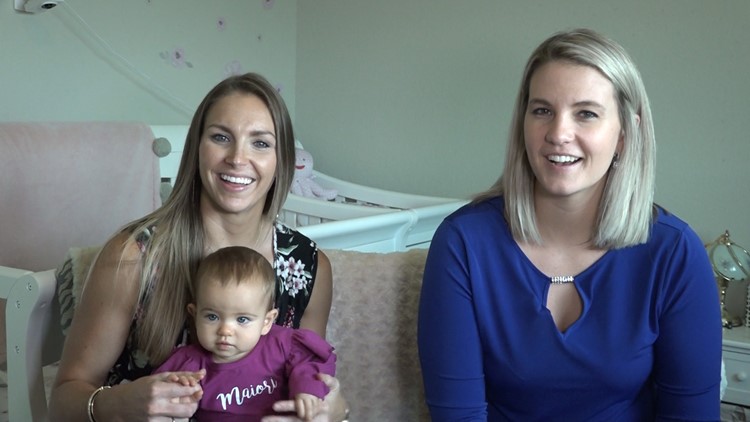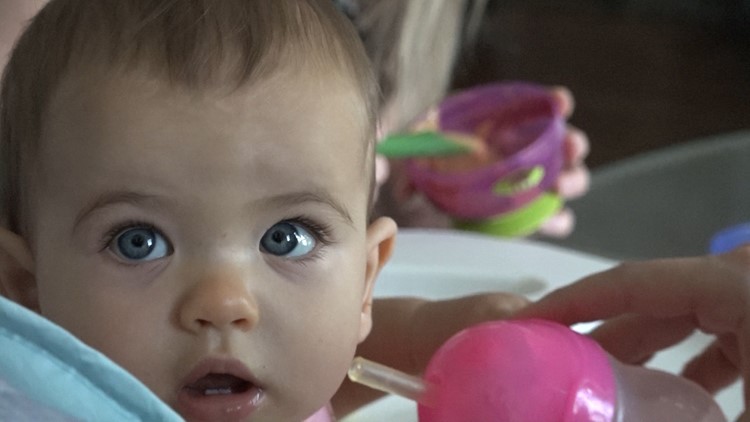PFLUGERVILLE, Texas — Courtney and Chantelle Graham are both women who are legally married. They've always wanted kids, and they had their 8-month-old, Maiori, through in vitro fertilization, or IVF. Later on, they found out Courtney needed to adopt Maiori to be her parent legally.
"Lots of couples are struggling with the fact that they want to be loving parents and that they're all having to financially come out-of-pocket, emotionally come out-of-pocket, feel lesser and just kind of humiliated and frustrated – and that feeling they shouldn't have to have because the laws are unfair," said Courtney.
During their IVF process, the doctor took Courtney's egg and mixed it with sperm from a donor, then implanted the embryo in Chantelle.
RELATED:
"We wanted our baby to have a sense of both of us, right? Maiori's my genetics, so that's great and biologically, she's mine, but Chantelle wanted to have a connection with her, as well. So that's why Chantelle birthed Maiori for our family," said Courtney.
According to their adoption and fertility lawyer, Sharna Caceres, if a heterosexual couple goes through IVF, neither the man nor woman would have to go through the adoption process to become legal parents.
RELATED:
Caceres said in a statement:
“As a family-building attorney in Texas, I have the privilege to help people grow and secure their families through adoption and surrogacy. Due to a lack of federal laws regarding children born within lesbian marriages, a second parent adoption is often recommended by groups such as the Human Rights Coalition and the National Center for Lesbian Rights. For a clear understanding of state and federal laws in relation to LGBT parentage, it is highly recommended to speak with an attorney highly experienced in adoption, surrogacy, and fertility law.”
The Human Rights Campaign website states, for same-sex couples it's often the case there may be only one legal parent, even though two people may equally parent the child.
In the Grahams' case, Chantelle, who carried Maiori, would have parental rights, but Courtney would not, even though it was her egg that was used in the IVF process.
PHOTOS: Same-sex couple fight for their rights to be parents
RELATED:
"There isn't an option for us both to have equal parental rights. It doesn't matter how we did it. So, we thought, hopefully, having me birth her and her genetically connected that we would have equal parental rights because it's the closest thing to a heterosexual couple having a baby together, but that isn't the case in Texas law," said Chantelle.
Chantelle and Courtney chose to go through the adoption process for Maiori, which officially gave Courtney legal parental rights, as of Sept. 17.
"It was stressful and it was embarrassing. It made us feel that we were lesser than other couples. Having to go through it, it wasn't just financially taxing; it was emotionally taxing and we don't want to go through that again. What's more important to us is not putting our future kids through that," said Chantelle.
For now, every time they have a baby through IVF, they'll choose to adopt and do this all over again. They just hope in the future, something will change.
"I'd rather spend my $6,000 on a college fund for my baby versus $6,000 to protect her from a law that should be ours already. We should be equal under that law," said Courtney.
RELATED:
"Our dream would be for all parents to be treated equally when children are brought into a family under the union of their marriage. If the marriage is federally recognized, then the children should be protected through both parent's rights to that child, just like it is through a heterosexual couple," said Chantelle.
You can read more about Second Parent Adoption on the Human Rights Campaign website.
PEOPLE ARE ALSO READING:

